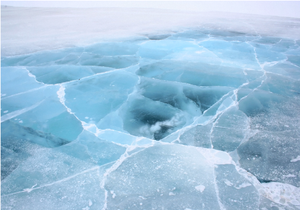Difference between revisions of "Ice"
| Line 14: | Line 14: | ||
: [[Liquid]] [[water]] [[Freezing|freezes]] to become '''ice''' at any [[temperature]] lower than 0°C. | : [[Liquid]] [[water]] [[Freezing|freezes]] to become '''ice''' at any [[temperature]] lower than 0°C. | ||
: '''Ice''' [[Melting|melts]] at any [[temperature]] higher than 0°C. | : '''Ice''' [[Melting|melts]] at any [[temperature]] higher than 0°C. | ||
| + | |||
| + | ===References=== | ||
| + | ====AQA==== | ||
| + | |||
| + | :[https://www.amazon.co.uk/gp/product/019835939X/ref=as_li_tl?ie=UTF8&camp=1634&creative=6738&creativeASIN=019835939X&linkCode=as2&tag=nrjc-21&linkId=57e96876985fc39b1a3d8a3e3dc238b6 ''Ice, pages 82, 84, GCSE Physics; Third Edition, Oxford University Press, AQA ''] | ||
Latest revision as of 18:26, 6 November 2019
Key Stage 2
Meaning
Ice is the solid phase of water.
Singular Noun: Ice
| The picture shows ice on a lake. |
About Ice
- Liquid water freezes to become ice at any temperature lower than 0°C.
- Ice melts at any temperature higher than 0°C.
